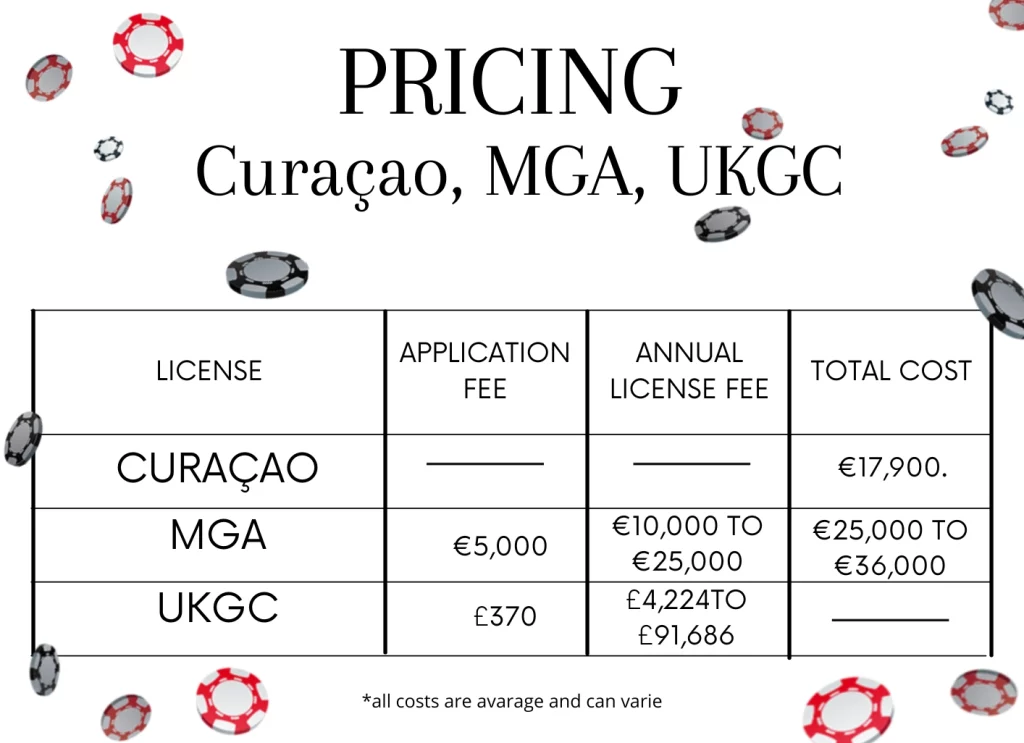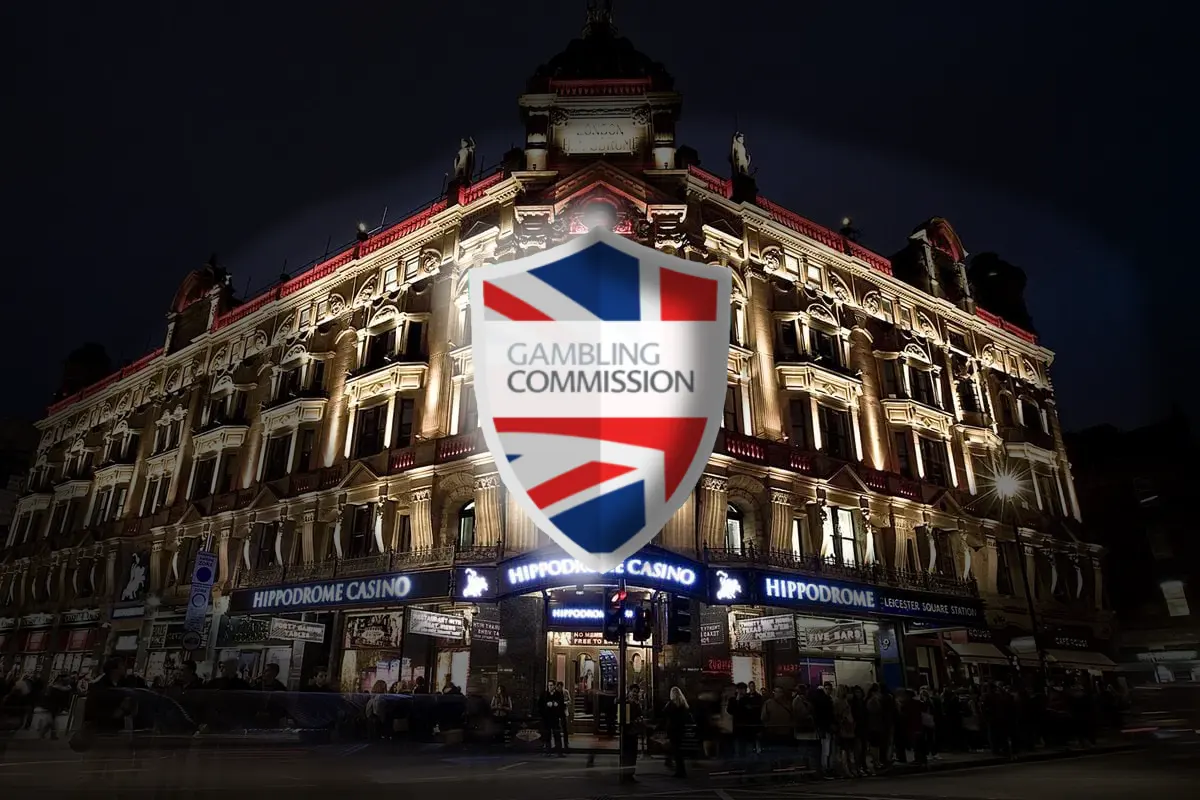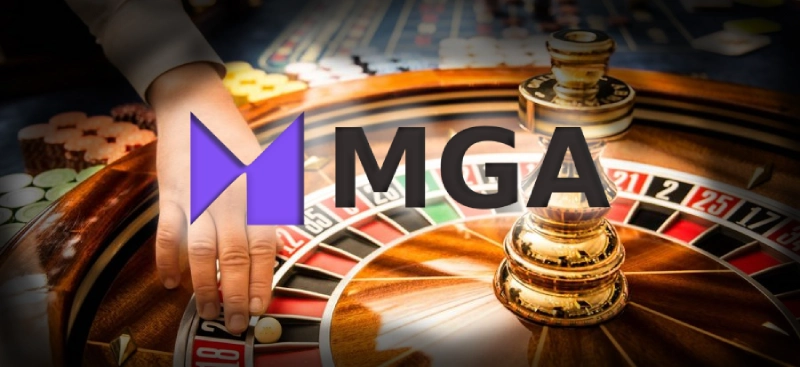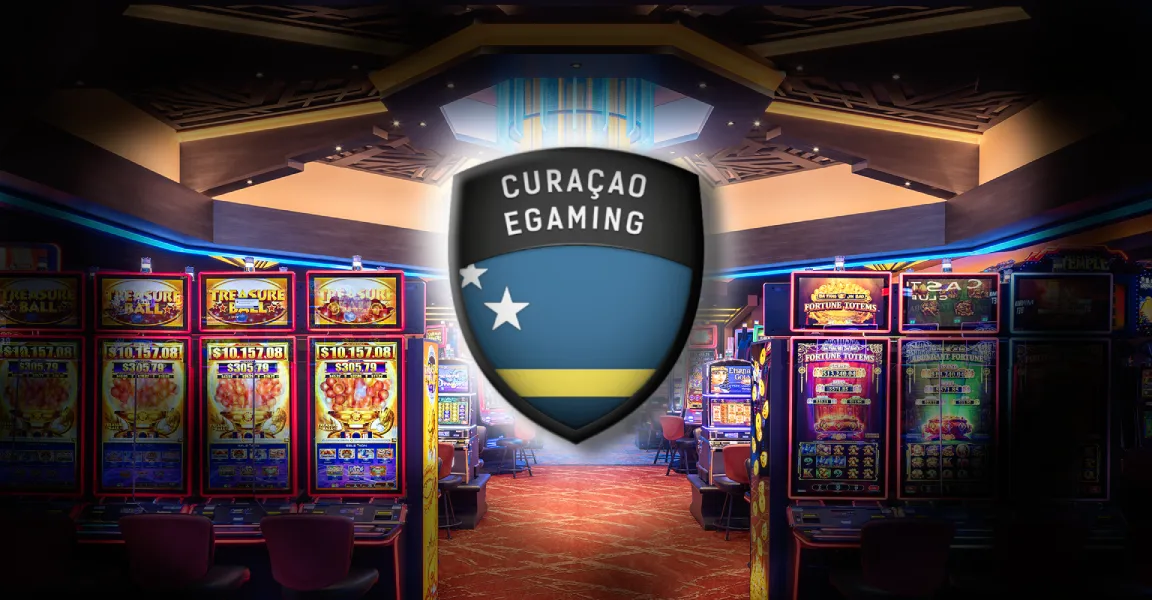Gambling License Cost

In the dynamic world of casino businesses, the cornerstone of legality and credibility rests upon obtaining a gambling license. This critical requirement not only ensures adherence to legal frameworks but also establishes trust among players and stakeholders. However, navigating through the intricacies of acquiring a gambling license, especially understanding its costs, can be a daunting endeavor.
This article serves as a comprehensive guide, shedding light on the various facets of gambling license costs. Our aim is to demystify the financial aspects involved in securing a gambling license, which is a pivotal step for any casino business aspiring to operate within the legal boundaries. We delve into the different types of licenses, the factors influencing their costs, and provide insights into budgeting for this crucial investment. By the end of this read, casino operators and entrepreneurs will be equipped with essential knowledge, enabling them to make informed decisions in their journey towards establishing a legitimate and successful casino business.
The Cost Factors of Gambling Licenses
Understanding the financial implications of obtaining a gambling license is essential for any casino business planning to operate legally and successfully. The cost of a gambling license can be influenced by various factors, which we will explore in this section.
Components of iGaming License Costs
When considering the expenses associated with obtaining a gambling license, it is important to recognize that these costs extend beyond the initial application fee. They encompass a range of components, each contributing to the overall financial outlay. Here’s an overview of the different costs involved:
- Application Fees: This is the initial cost paid when submitting an application for a gambling license. It varies widely depending on the jurisdiction and the type of gambling services offered.
- Licensing Fees: Post-approval, operators are required to pay licensing fees, which can be annual or cover a different set period.
- Compliance Costs: These are the expenses related to meeting regulatory requirements, including system reviews, audits, and ongoing compliance measures.
- Legal and Professional Fees: Obtaining expert legal and financial advice is crucial in navigating the complex licensing process, contributing additional costs.
- Operational and Maintenance Costs: After obtaining the license, there are ongoing expenses related to maintaining regulatory compliance and operational standards.
Understanding these components is crucial for any operator to accurately budget for the total cost of obtaining and maintaining a gambling license.
Understanding Licensing Jurisdictions
The choice of licensing jurisdiction plays a pivotal role in determining not only the cost but also the scope and credibility of a gambling license. Each jurisdiction has its own regulatory framework, which influences the overall cost structure. Factors such as the jurisdiction’s reputation, regulatory rigor, and market access can significantly impact the cost of a license. For instance, a license from a highly reputable jurisdiction like Malta or the United Kingdom may come with higher costs due to stringent regulatory requirements and global recognition. In contrast, jurisdictions like Curacao might offer more cost-effective solutions but with different levels of market recognition and regulatory oversight.
License Costs in Key Jurisdictions
Understanding the cost structure of casino licenses in various jurisdictions is crucial for any casino business. Here’s a breakdown of the license costs in three key areas

- Cost:Starts from €17,900.
- Notable Feature: Known for its streamlined and cost-effective process, the Curacao gaming license is a popular choice for many operators seeking an affordable entry into the gambling industry.
Malta Gaming Authority (MGA) License:
- Application Fee: €5,000 for a new license; same amount for renewal.
- Annual License Fee: Ranges from €10,000 for type 4 gambling services to €25,000 for types 1, 2, 3 services.
- Other Fees: System review and compliance audit fee of €6,000.
- Total Cost: Generally falls between €25,000 to €36,000, varying with specific requirements and services.
United Kingdom Gambling Commission (UKGC) License:
- Application Fee:£370, non-refundable.
- Annual Fee: Varies based on Gross Gambling Yield (GGY).
- For GGY below £550,000: Application fee around £4,224 and annual fee approximately £4,199.
- For GGY of £1 billion or more: Application fee can be up to £91,686 and annual fee up to £793,229, plus an additional £125,000 for every extra £500 million in annual GGY.
Choosing the Right Jurisdiction
Selecting the appropriate jurisdiction for obtaining a gambling license is a strategic decision that requires careful consideration of various factors. The choice of jurisdiction can significantly impact the operational, legal, and financial aspects of a casino business. Here are key factors to consider when making this decision:
- Regulatory Requirements: Different jurisdictions have varying regulatory standards. Some may have stringent rules regarding player protection, money laundering, and game fairness, while others might be more lenient. Operators should assess their ability to meet these requirements before choosing a jurisdiction.
- Reputation of the Jurisdiction: The reputation of the licensing jurisdiction can affect the credibility and appeal of the casino business. A license from a well-regarded jurisdiction like the UK or Malta can enhance trust among players and business partners.
- Processing Time: The time taken to process a gambling license application varies between jurisdictions. Some offer a faster processing time, which can be crucial for businesses looking to launch quickly. However, faster processing might come with less rigorous scrutiny, which could impact the long-term reputation of the business.
- Cost Considerations: This includes not only the initial application and licensing fees but also ongoing costs related to compliance and operational maintenance. Jurisdictions with lower initial costs may have higher long-term expenses, and vice versa.
- Taxation and Financial Regulations: The tax regime and financial regulations of a jurisdiction can significantly impact the profitability and operational efficiency of a gambling business. Operators need to consider the tax implications and reporting requirements in the chosen jurisdiction.
- Market Access and Restrictions: Some jurisdictions offer broader market access, allowing operators to target multiple regions. Others may have restrictions on the geographical areas that their licensees can serve.
- Technical and Infrastructure Requirements: Jurisdictions may have specific technical standards and infrastructure requirements for online gambling platforms. Operators should ensure they can meet these requirements before applying for a license in a particular jurisdiction.
- Legal Support and Professional Services:The availability of expert legal and consultancy services in the jurisdiction can facilitate the licensing process and ensure ongoing compliance.
By carefully evaluating these factors, operators can select a jurisdiction that not only meets their current needs but also aligns with their long-term business strategy, ensuring a sustainable and profitable operation.
Conclusion
Understanding the costs associated with obtaining a gambling license is a fundamental step for any casino business aiming to operate legally and successfully. This journey involves not only comprehending the upfront fees but also considering the ongoing financial commitments required for maintaining regulatory compliance and operational standards. As we have explored, the choice of jurisdiction plays a critical role in shaping these costs, influenced by factors such as regulatory requirements, reputation, processing time, and market access.
We encourage prospective casino operators to thoroughly evaluate all these aspects to make an informed decision. A careful assessment ensures a balance between meeting legal obligations and achieving business objectives, paving the way for a sustainable and trustworthy casino operation.
FAQ
-
What is a UK Gambling License?
A UK Gambling License is a legal certification issued by the United Kingdom Gambling Commission (UKGC) that allows businesses and individuals to legally offer gambling services within the UK. It ensures compliance with the country's gambling laws and regulations.
-
Who needs a UK Gambling License?
Any business or individual intending to offer gambling services, operate a gambling venue, or work in a significant role within the gambling industry in the UK must obtain the appropriate UK Gambling License.
-
What are the different types of UK Gambling Licenses?
There are mainly three types: Operating Licenses (for online and land-based gambling operations), Personal Licenses (for individuals in key management roles or influencing gambling outcomes), and Premises Licenses (for physical locations where gambling occurs).
-
How long does it take to obtain a UK Gambling License?
The processing time varies. Operating and personal licenses can take around 16 weeks and 8 weeks respectively, depending on the complexity and completeness of the application. Premises licenses typically take up to 8 weeks, subject to local authority processes.
-
Why is a UK Gambling License important?
It ensures legal compliance, fosters a safe and fair gambling environment, enhances market reputation, and builds player trust. It also protects operators from legal issues and opens access to the lucrative UK gambling market.


 Ianne Fields
Ianne Fields  19:46 16.11.2023
19:46 16.11.2023 

